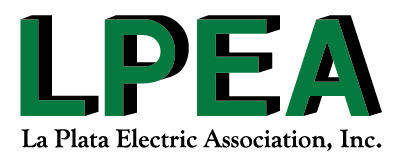Getting Started
There are many reasons to consider installing solar, from reducing your carbon footprint to lowering your energy bills. LPEA’s Net Metering Program allows members with eligible systems to generate their own electricity and to sell any excess electricity they generate back to LPEA. As you consider whether installing solar with or without battery backup is the right decision, you will want to consider a variety of topics.
- How much electricity do you currently use and how might future energy efficiency upgrades or electrification (EV, heat pump etc.) decrease or increase your usage?
- Is your residence a good fit for solar panels?
- Are there any restrictions on installing solar in my area? Find out here.
- What are the short-term and long-term financial implications?
Use the information and links on this page to guide you through evaluating these considerations. If you decide that installing may be a good fit, check out the "Ready to get quotes" page.
Understanding Net Metering
What is Net-Metering?
Net-metering is a billing method that is applied to LPEA members with qualifying solar PV systems. Net-metering allows LPEA to track the electricity you provide to the grid when your PV solar system is making more energy than you are using and reconcile that against the energy you use from the grid at other times.
How does net metering work?
Your LPEA electricity meter can measure the flow of electricity from the grid to your home and from your home to the grid. Net-metering works by keeping track of surplus power generated by your PV system that flows onto LPEA’s grid as kWh credits. These credits are stored in your net meter bank and can offset any electricity you use from the grid when your system is not producing power. These credits are applied at a 1 to 1 ratio. This means the energy you generate is valued at the same rate as the energy you consume. Excess credits are rolled over to the next month until April. If there are still credits in your account in April, LPEA will purchase that excess annual energy from you at its wholesale energy rate.
Prepare for solar: Make the most of your investment
Before choosing to invest in a solar system, members should understand their electricity use and look at energy efficiency first.
The optimal size for a solar system will depend on how much electricity you use. Log on to your LPEA SmartHub account to explore and better understand your energy use.
The best way to prepare for solar is to start by making your home more efficient. If you use less energy, it means you need to produce less energy and you can install a smaller system to save even more money. Start with a professional energy audit to help identify ways to save, we have a rebate to help with the cost. Check LPEA’s rebate page to help make efficiency and electrification measures easier.
